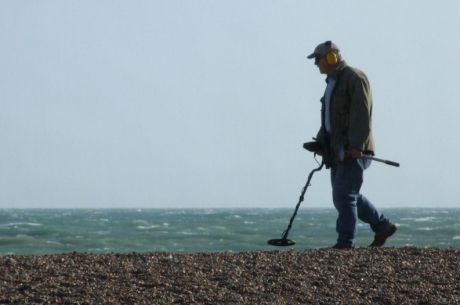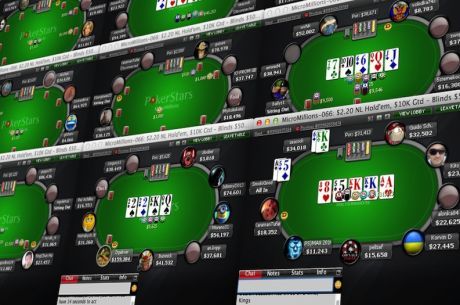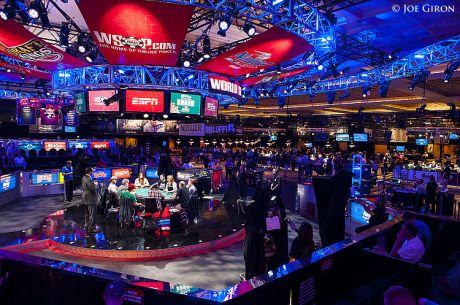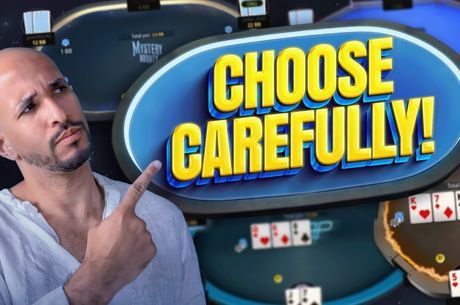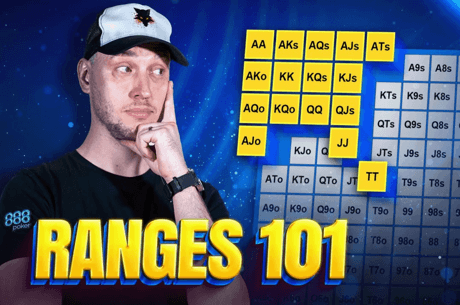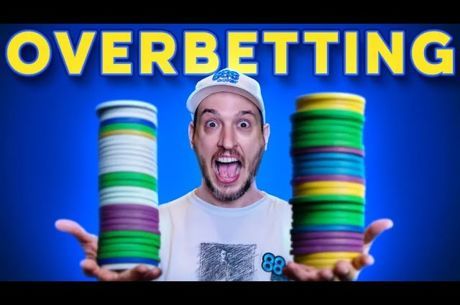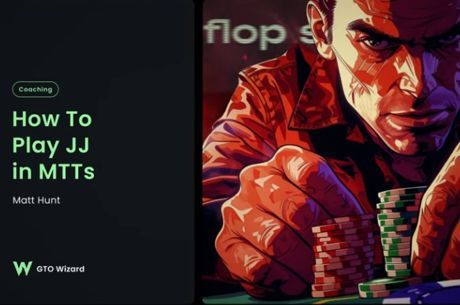Cash Advances, Vol. 1: Semi-Bluffing Backdoor Draws
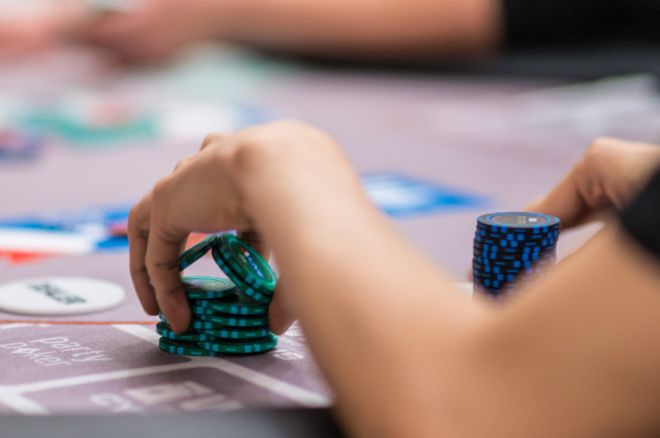
My name is Carlos Welch. You may not know me, but I am the worst poker player in the world.
Actually, that’s not true. It’s just what I used to tell myself after making boneheaded plays while first trying to learn cash games. Some of those donkey decisions have been cataloged here in my Cash Catastrophes series of articles.
After getting burned a number of times, I’ve managed to make some advances in my cash game. I’ll share with you some of what I have learned in a new series — Cash Advances. Here’s the first one having to do with semi-bluffing backdoor draws.
The Hand
It’s my regular $1/$2 game. The effective stacks are $300. A tight aggressive player opens to $10 from early position (EP) and gets called by a loose aggressive player from middle position (MP). I call on the button with 10♦8♦. There is $33 in the pot.
The flop comes K♠9♦3♣. EP checks, then MP bets $25.
This flop is perfect for EP to c-bet (I think), but he checked so he probably isn’t very strong. MP did not three-bet, so his preflop range is capped. His bet here could indicate either marginal value hands like KxQx, QxQx, JxJx, or 10x10x, a speculative hand that hit two pair or better, or a whiffed speculative hand that he is turning into a bluff because he knows as well as I do that EP is unlikely to be very strong.
Bottom line: There are very few monsters left in either player’s range given their actions; therefore, I can credibly represent two pair or better with a raise. This should get them off of everything worse than a Kx immediately. In addition to this, I have three to a backdoor straight flush draw, so I can shove any diamond, Jx, 7x, and probably any Ax on the turn to get them off of hands like KxQx that decided not to fold to the flop raise.
I raise to $90. EP folds immediately and MP tank-folds.
The Advance
I never would have made this play this time last year. In fact, I was such a nit at the time that I may not have even called the original raise preflop. My biggest hang-up was fear. Even if I’d realized that MP was likely weak, I would have thought that there was nothing I could do about it. What if I raised here and he had a set, or EP was slow playing KxKx?
While these possibilities are very real, they were unlikely. Even so, they had been morphed into absolute certainties by my fear. In reality, I risked $90 to win $58, so I only had to be right just over 60% of the time. This number doesn’t even take into consideration any equity I could pick up on the turn. Although this move may be profitable with any two cards, the possibility of additional turn equity makes this a bread-and-butter play with suited connectors. Nowadays, I am constantly on the look out for spots like this where I can play speculative hands like 10x8x-suited in position with a good bit of money behind.
In the past, if I did decide to play a hand like this, I would have played it more “fit or fold” like I do when I am set mining. It was an approach that did not require as much understanding of other players’ tendencies. However having this understanding in my game now has allowed me to redefine the “fit” in “fit or fold.” Now when I play 10♦8♦, I am calling for the 9♦ in my head as if I held pocket nines because I know that card will allow me to attack any weakness I sense from players who have to act before me when I have position on them.
The Lesson
We constantly need to be on the lookout for ways to play more hands profitably. This can be done by playing speculative hands in position, but we cannot just play “fit or fold.” We have to be more vigilant and look for player tendencies, because when our out-of-position opponents show weakness, they give us license to turn weak fits into strong bluffs.
Get all the latest PokerNews updates on your social media outlets. Follow us on Twitter and find us on both Facebook and Google+!

